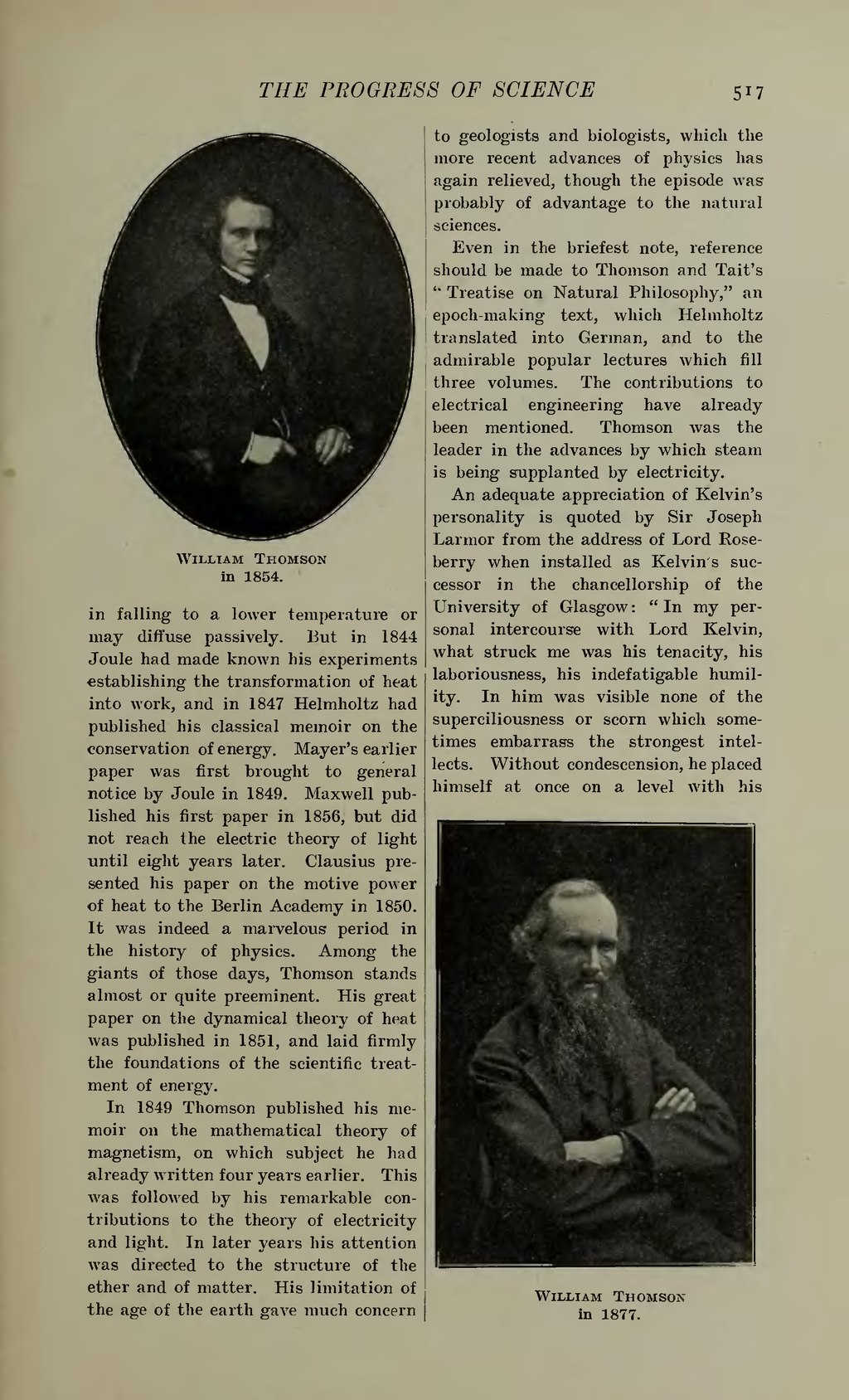 William Thomson
William Thomson
in 1854. in falling to a lower temperature or may diffuse passively. But in 1844 Joule had made known his experiments establishing the transformation of heat into work, and in 1847 Helmholtz had published his classical memoir on the conservation of energy. Mayer's earlier paper was first brought to general notice by Joule in 1849. Maxwell published his first paper in 1856, but did not reach the electric theory of light until eight years later. Clausius presented his paper on the motive power of heat to the Berlin Academy in 1850. It was indeed a marvelous period in the history of physics. Among the giants of those days, Thomson stands almost or quite preeminent. His great paper on the dynamical theory of heat was published in 1851, and laid firmly the foundations of the scientific treatment of energy.
In 1849 Thomson published his memoir on the mathematical theory of magnetism, on which subject he had already written four years earlier. This was followed by his remarkable contributions to the theory of electricity and light. In later years his attention was directed to the structure of the ether and of matter. His limitation of the age of the earth gave much concern to geologists and biologists, which the more recent advances of physics has again relieved, though the episode was probably of advantage to the natural sciences.
Even in the briefest note, reference should be made to Thomson and Tait's "Treatise on Natural Philosophy," an epoch-making text, which Helmholtz translated into German, and to the admirable popular lectures which fill three volumes.  William Thomson
William Thomson
in 1877. The contributions to electrical engineering have already been mentioned. Thomson was the leader in the advances by which steam is being supplanted by electricity.
An adequate appreciation of Kelvin's personality is quoted by Sir Joseph Larmor from the address of Lord Roseberry when installed as Kelvin s successor in the chancellorship of the University of Glasgow: "In my personal, intercourse with Lord Kelvin, what struck me was his tenacity, his laboriousness, his indefatigable humility. In him was visible none of the superciliousness or scorn which sometimes embarrass the strongest intellects. Without condescension, he placed himself at once on a level with his

